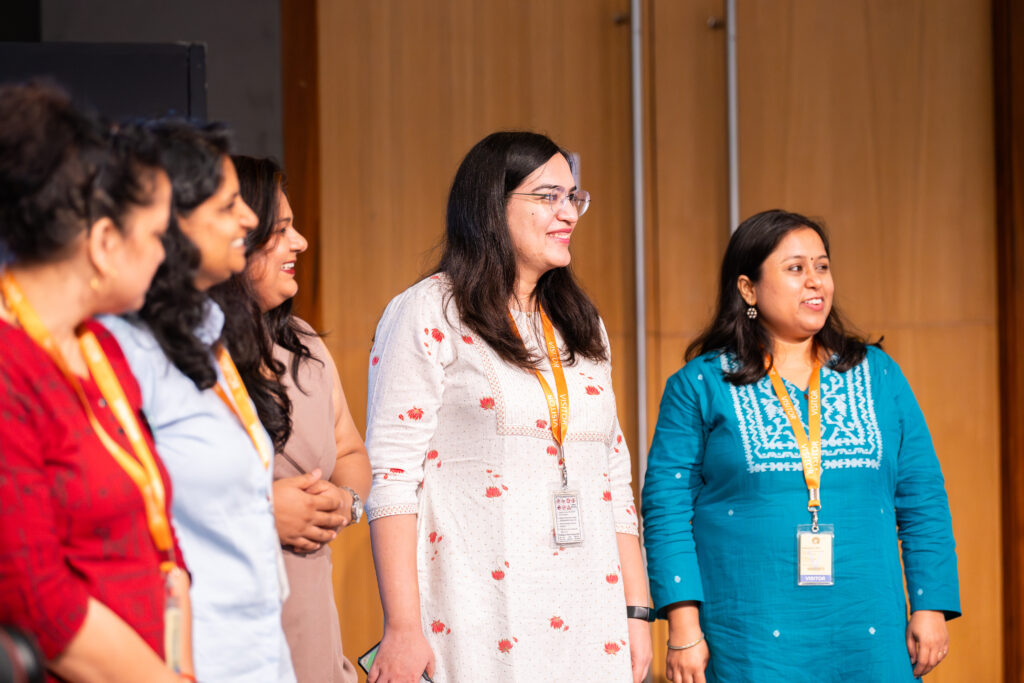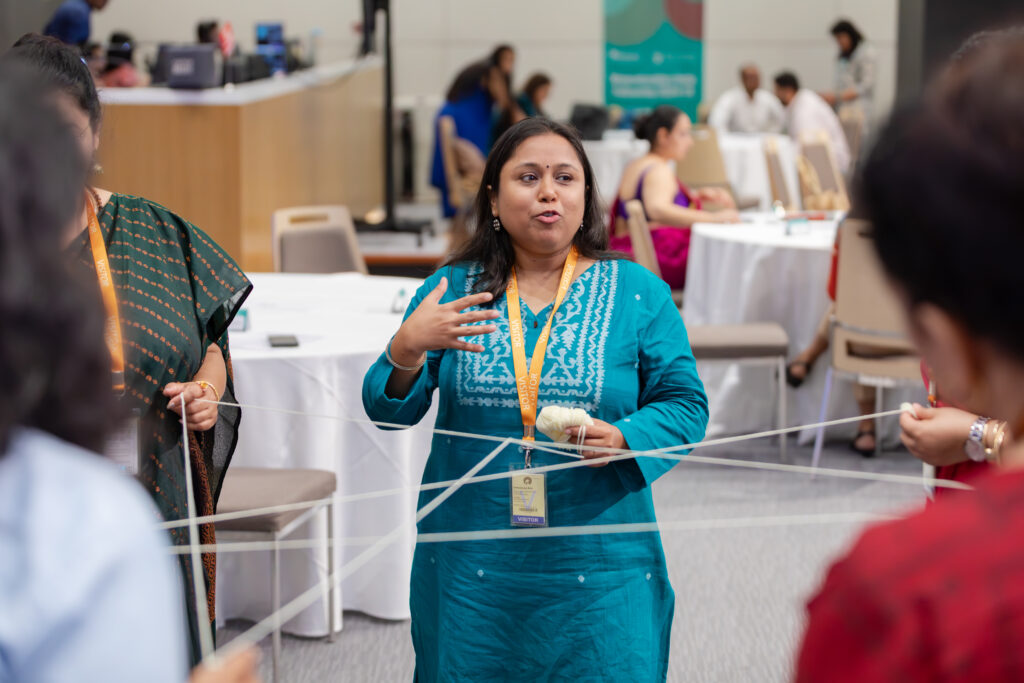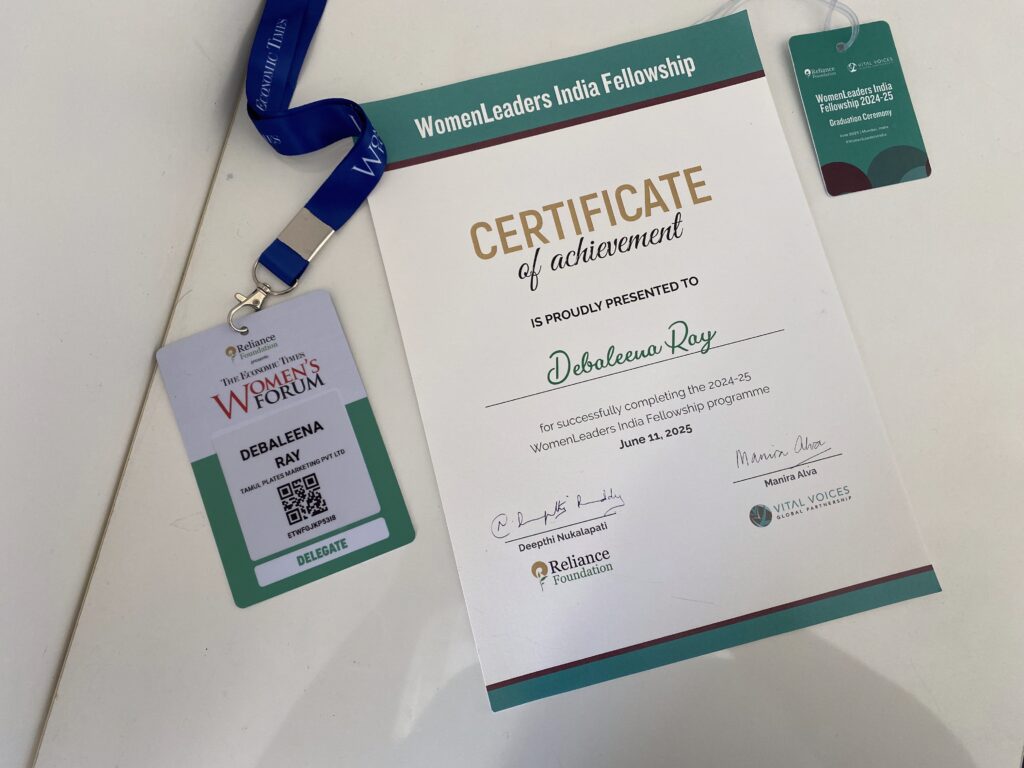Tamul Plates’ Chief Impact Officer Named a Top Fellow in WomenLeaders India Fellowship 2024–25
Introduction
Tamul Plates proudly celebrates the recognition of our Chief Impact Officer, Debaleena Ray, as one of the Top 10 Fellows in the prestigious WomenLead India Fellowship 2024–2025, powered by Reliance Foundation and Vital Voices.
This honour is a testament to Debaleena’s unwavering commitment to empowering rural tribal women in Northeast India through sustainable, community-driven enterprises.
In this blog post, we reflect on her fellowship journey, exploring how it has further strengthened her work on the ground, supported the growth of women-led businesses, and aligned closely with both the United Nations Sustainable Development Goals (SDGs) and Tamul’s Vision 2030.
WomenLeaders India Fellowship 2024–25: Empowering Changemakers
The WomenLeaders India Fellowship 2024–25 is a national initiative designed to elevate women who are driving social change in India. Launched by Reliance Foundation in partnership with Vital Voices, this fellowship identified 50 exceptional women leaders committed to creating positive change in their communities. Fellows are selected from across the country for their impactful work in critical areas such as Climate Resilience, Education, Sports for Development, and Livelihood Generation.
Over a 10-month program, these 50 fellows gained access to leadership training, mentorship from Indian and global experts, and a network of peers and alumni, all aimed at amplifying their social impact. The fellowship culminated in a final convening where fellowed pitched their SDG projects and celebrated their accomplishments.
Debaleena Ray: Championing Sustainable Livelihoods and Social Impact
Debaleena was selected as a WomenLeaders India Fellow last September. Her selection is a proud recognition of her two decades of dedication focussed on gender and women empowerment.
Debaleena joined Tamul around 13 years back when the community based arecanut leaf plate making enterprises was more men friendly. Since its inception, women had been an integral part of Tamul’s arecanut value chain. In fact, Tamul data shows that nearly 70–80% of the entire value chain comprised women, but primarily in the role of sheath collectors. Despite their significant involvement, these rural women received only a small fraction of the final consumer price, resulting in low and seasonal incomes with limited financial stability. So, in 2018, we made a strategic decision to design a cluster-based program that would enable women to move up the value chain, transitioning from low-income roles like sheath collection to more value-added entrepreneurial activities. This shift aimed to ensure that they could claim a larger share of the market and significantly increase their incomes.
This cluster model truly proved its resilience during the COVID-19 pandemic, when most sources of income in villages came to a halt. Despite the crisis, Tamul’s women producers continued to earn, and even generated livelihoods for others in their communities by creating a steady demand for arecanut sheaths, which were supplied to their production units.
In 2023, the cluster model further evolved where a group of 5 women came together to access bank finance to start an arecanut leaf plate making unit. Although the women shared the loan burden equally, their entrepreneurial journey and production was at an individual level, with each one having an equal access to the machinery and the asset.
This model again proved the concept of a shared asset being created to acces bank finance and earn an individual income. .
Being selected as a fellow in the WomenLeaders India program, helped Debaleena to refine this model, scrutinse it from fresh perspectives, identify the bottlenecks and develop newer strategies for scale at an accelerated pace.
The WomenLead India Fellowship has been a transformative experience for Debaleena Ray, Chief Impact Officer at Tamul Plates. Through a blend of deep personal reflection and strategic professional development, the fellowship played a pivotal role in shaping her leadership journey and strengthening the growth of Tamul’s cluster model.

On a personal level, sessions like Imposter Syndrome gave Debaleena the space to reflect on how self-doubt had affected her confidence, particularly in high-stakes situations. These insights enabled her to take conscious steps toward overcoming it. The wellness session further reinforced the importance of introspection and self-care, a reminder that pausing to reset is vital for sustained impact.
Professionally, the fellowship came at a crucial juncture, just as Tamul was setting its strategic goals for the financial year. The strategic goal-setting sessions helped Debaleena refine the company’s direction with sharper focus and clarity. A particularly powerful moment came during the storytelling session, which helped her integrate her personal journey into Tamul’s broader narrative, a voice that had long been missing but was crucial in inspiring others and strengthening the organization’s story.
The pitching sessions provided practical tools that proved invaluable as she prepared to present Tamul’s model on a national platform. For the first time, she pitched in a room full of people, using a deck that resonated strongly with the audience. The experience not only boosted her confidence but also opened up new visibility and opportunities for Tamul’s work.
Perhaps the most game-changing element of the fellowship was the mentoring experience. Debaleena’s mentor worked closely with her to document and refine Tamul’s cluster operations strategy, which is now being implemented on the ground. The mentorship was not about offering generic advice, it was grounded in honest, thought-provoking conversations that encouraged Debaleena to explore all possibilities, dig deep into market-specific solutions, and arrive at a strategy uniquely suited to Tamul’s context.
As a result of this journey, both Debaleena and the women-led clusters she champions have experienced significant growth. The fellowship has not only enhanced her leadership capabilities but has also helped strengthen a model that is empowering rural tribal women across Northeast India to build sustainable, community-owned enterprises.
For Tamul Plates, Debaleena’s achievement shines a spotlight on the effectiveness of our mission-driven approach and inspires us to continue pushing boundaries in social innovation.
Aligned with Tamul Plates’ Mission of Sustainability and Empowerment
Tamul Plates produces eco-friendly dinnerware made from naturally shed areca palm leaves, turning agricultural waste into a sustainable alternative to plastic.
This innovative model not only benefits the planet but also creates vital income opportunities for rural communities.
Our Impact So Far:
-
500+ rural jobs created
-
4,500+ livelihoods impacted
-
70% of beneficiaries are women from marginalized communities
These results reflect Tamul Plates’ core mission:
Sustainability through innovation and community empowerment, a mission that aligns closely with the values of the WomenLeaders India Fellowship.
Cluster Model Designed During the Fellowship
During the WomenLeaders India Fellowship, Debaleena Ray designed an advanced version of the women-led cluster model. This model is now being implemented in Assam and Meghalaya, aligning with the following UN Sustainable Development Goals (SDGs):
SDG 5 – Gender Equality | SDG 8 – Decent Work & Economic Growth | SDG 10 – Reduced Inequalities | SDG 12 – Responsible Consumption and Production

Key Features of the Cluster Model:
-
Identify, upskill, and empower tribal women from remote villages to establish and manage production units
-
Provide market access to rural micro-entrepreneurs who value-add areca sheaths into compostable tableware
-
Engage women and youth from 20 marginalized communities as active stakeholders and producers in the value chain
-
Promote a win-win ecosystem that strengthens both quality and quantity of production
-
Replace 100,000 plastic plates daily with sustainable areca nut plates
-
Reduce CO₂ emissions by 10.6 tons per day
Conclusion: A Proud Milestone and the Road Ahead
Debaleena Ray’s selection as a Top 10 WomenLeaders India Fellow for 2024–25 is more than just a personal accolade, it’s a attestation of Tamul ethos and action.
We congratulate Debaleena on this well-deserved honor and acknowledge the hard work of our entire team and community that made this possible. As she engages with other inspiring fellows and mentors through the program, we are confident she will bring back fresh insights and strengthened leadership to further our mission.

This milestone energizes us to continue innovating and expanding our impact: from introducing more sustainable product solutions to uplifting even more communities.
In the spirit of the WomenLeaders India Fellowship, Tamul Plates remains committed to leading with purpose. We will keep championing the cause of environmental sustainability while empowering women and marginalized groups as agents of change.
Debaleena’s journey exemplifies how one leader’s vision can spark transformation; together, as a team and a family, we will carry this vision forward.
Here’s to many more such proud moments on our path to a greener, more inclusive future!

